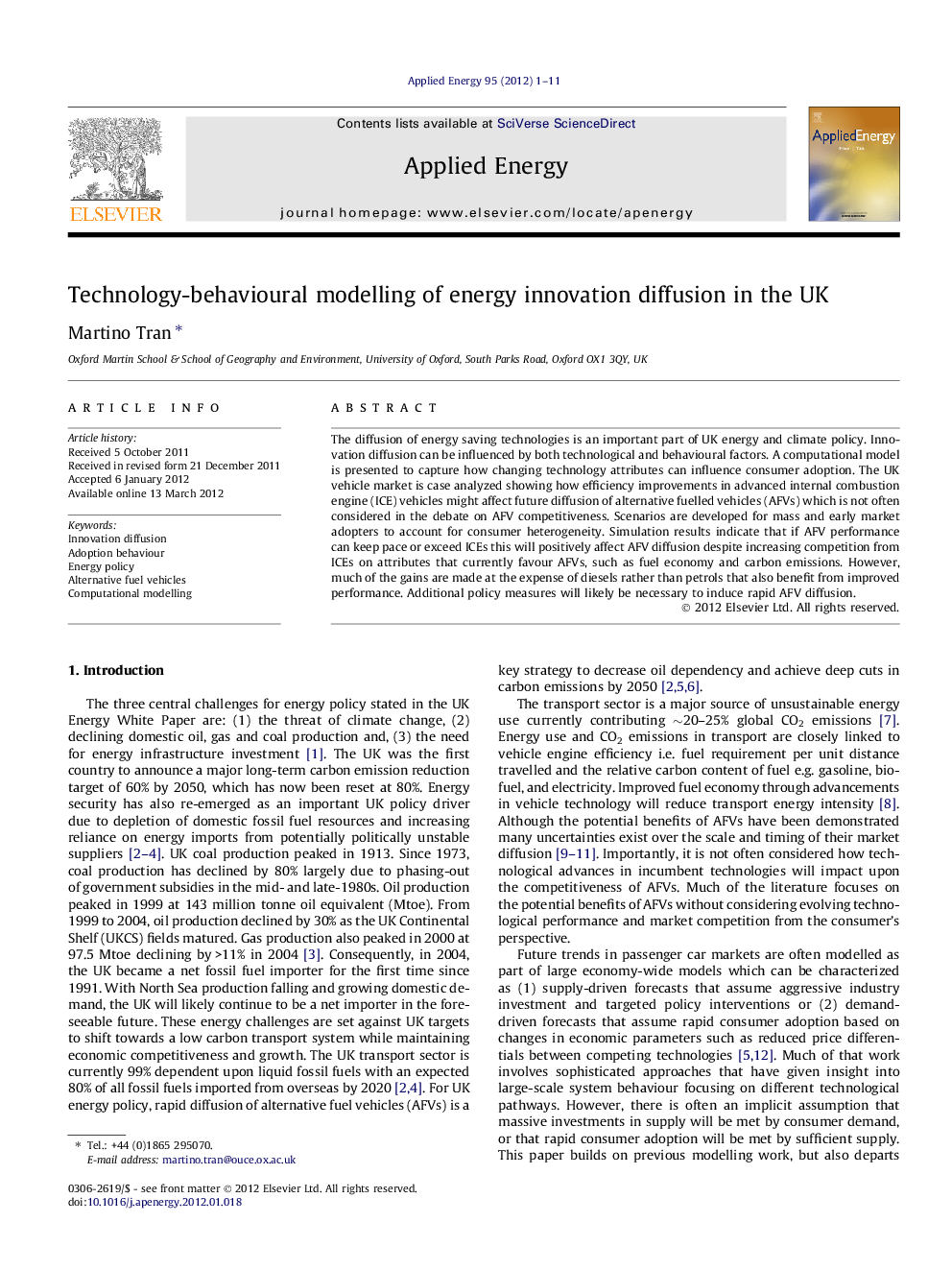| Article ID | Journal | Published Year | Pages | File Type |
|---|---|---|---|---|
| 243668 | Applied Energy | 2012 | 11 Pages |
The diffusion of energy saving technologies is an important part of UK energy and climate policy. Innovation diffusion can be influenced by both technological and behavioural factors. A computational model is presented to capture how changing technology attributes can influence consumer adoption. The UK vehicle market is case analyzed showing how efficiency improvements in advanced internal combustion engine (ICE) vehicles might affect future diffusion of alternative fuelled vehicles (AFVs) which is not often considered in the debate on AFV competitiveness. Scenarios are developed for mass and early market adopters to account for consumer heterogeneity. Simulation results indicate that if AFV performance can keep pace or exceed ICEs this will positively affect AFV diffusion despite increasing competition from ICEs on attributes that currently favour AFVs, such as fuel economy and carbon emissions. However, much of the gains are made at the expense of diesels rather than petrols that also benefit from improved performance. Additional policy measures will likely be necessary to induce rapid AFV diffusion.
► We model technology-behaviour interactions for AFV diffusion. ► Increasing performance of ICEs will affect diffusion of AFVs. ► If AFV performance exceeds ICEs this will positively influence their diffusion. ► Hybrids may take market share away from diesels rather than petrols.
